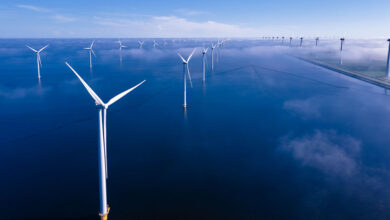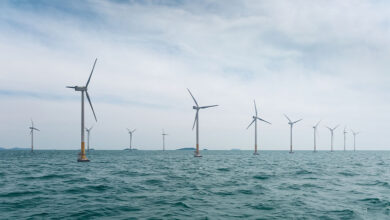EU action on Ireland’s environment
 Ireland’s environmental record is improving but it continues to face legal action as Commissioner Potocnik demands clear and decisive action. eolas sums up the situation.
Ireland’s environmental record is improving but it continues to face legal action as Commissioner Potocnik demands clear and decisive action. eolas sums up the situation.
“We are now faced with convincing and overwhelming scientific evidence of environmental damage caused by no-one else but us,” EU Environment Commissioner Janez Potočnik told MEPs in 2010. “And a whole new generation of Europeans demand clear and decisive action to preserve and reclaim the planet which we have done so much to hurt.”
During Potočnik’s tenure, the European Commission has continued to press Ireland to improve and enforce environmental law. Infringements are prosecuted by a range of directorate-generals (effectively departments) within the Commission but DG Environment has the largest single caseload, handling around one in five cases.
The first stage, taken under Article 258 of the Treaty on the Functioning of the European Union, involves issuing a letter of formal notice and can lead to action in the European Court of Justice. If the member state fails to comply, the Commission can take the case to the Court of Justice again: so-called Article 260 cases.
Based in Luxembourg, the Court of Justice is the highest court of EU law and is entirely separate from the European Court of Human Rights. A total of 339 cases were open on 31 December 2011, of which 17 were against Ireland: the highest number in western Europe. However the number of cases has fallen from a total of 31 when the Government took office in March 2011. Seven of these cases involved environmental impacts, with four each for nature and water, one air case and one waste case. All but one of the cases arose from the poor application of EU law, the other being for non-conformity. Two Article 260 cases against Ireland are currently before the Court of Justice: C-279/11 on environmental impact assessments and C-374/11 on septic tank legislation. A further two cases may go back to court but have not reached the second referral stage.
Ireland’s most recent referral to the Court of Justice took place on 21 June, over incomplete environmental impact assessment laws. The Commission is seeking a lump sum fine of over €1.8 million and a penalty payment of over €19,000 per day from the new ruling until the infringement ends.
This followed a ruling in March 2011, which found that Ireland had not yet fully transposed the Environment Impact Assessment Directive into national law. The Commission is critical of split decision-making between Irish planning authorities and the Environment Protection Agency, and an exemption for demolition works.
Last November, the Commission served notice and asked the Government to recover costs of all water services. The Government had defined water services as the supply of drinking water and the disposal and treatment of waste water. However, the Water Framework Directive also covers industrial and agricultural abstraction, using lakes for leisure purposes, flood protection, hydro-electricity and well-drilling. Irish policy, in the Commission’s view, was contributing to inefficient or wasteful use of water.
A previous case in June 2011 was the latest development in Ireland’s long-running dispute with Europe over peat extraction in protected sites. Turf-cutting had continued despite warnings issued by the Irish Government and up to 35 per cent of some habitats had been destroyed since 1998, with a further 1-4 per cent being lost each year. Environmental impact assessments had been possible since 2005, under Irish law, but none had been carried out.
The Commission is monitoring progress in both cases and has not announced further action. The deployment of Air Corps aircraft to detect illegal turf cutting is one indirect consequence of the peat case.
Critics claim that Europe’s environmental policies are inflexible and out of touch, but Ireland has accepted that EU law takes priority over national law as part of its membership. For his part, Potočnik has pointed out that “the economy needs the environment and the environment needs the economy” i.e. failing to act now will therefore damage our prosperity in the long run.





